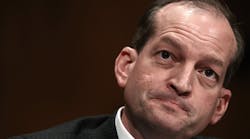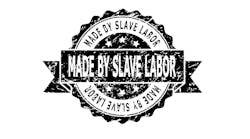Labor Secretary Reverses Joint Liability and Independent Contractor Policies
Two sweeping regulatory policies adopted by the Obama-era Labor Department have been reversed by new Secretary of Labor Alexander Acosta.
Acosta’s action reversed previous “guidance” memos issued by then-chief of DOL’s Wage and Hour Division about how his investigators would enforce regulations dealing with joint employment and independent contractors. The two documents embodied the views of then-division director David Weil, a former college professor who staked out what employers and other observers viewed as extreme positions on both issues.
In a separate action taken on May 22, Acosta also announced the department’s intention to rescind its controversial “persuader” rules. Last year, after the final rule was issued by DOL, a federal judge in Texas issued an injunction blocking it before it could go into effect, and it had been tied up in litigation since.
That rule would have required companies to file public annual reports with DOL revealing any arrangements and payments they made to outside labor consultants and attorneys. Filed electronically, these reports would be made publicly available to serve as additional ammunition for use in union organizing campaigns.
Although praised extravagantly by unions, the new rule drew fire from employer groups and attorneys who argued that it violated their First Amendment rights and standards for maintaining attorney-client confidentiality. Legislation was introduced in Congress and lawsuits were filed in three states seeking to overturn the new regulation.
Employers and attorneys attacking the rule asserted that it violated their First Amendment rights and undermined their ability to maintain attorney-client confidentiality. As it was written, the rule also was interpreted as stretching so far as to cover even seminars and workshops on labor issues that are held by industry associations.
Taking the Next Step
Acosta’s June 7 announcement pulling back Weil’s joint liability and independent contractor policies drew praise from employer groups. “[This] announcement from the Labor Department is an important first step in reversing one of the most onerous regulations imposed by the previous administration on businesses,” says Matthew Shay, president of the National Retail Federation.
“Drastically expanding joint employer liability to hold one business responsible for the actions of another independent business, such as a subcontractor or franchisee, did nothing to protect employees and only created uncertainty that led to more growth-chilling litigation,” he adds. “Retailers hope Congress will build on this progress and put the issue to rest once and for all with clear, fair legislation defining joint employers.”
Other groups representing employers expressed similar relief, while those who work to advance organized labor interests were unhappy with the decision. Christine Owens, executive director of the National Employment Law Project, complains, “It’s disappointing that DOL has rescinded two administrator’s interpretations that were issued to provide concrete compliance assistance to employers and workers alike about their rights and responsibilities under federal minimum wage law.”
Among the industries hardest hit by the joint liability standard were the nation’s numerous franchise businesses. Specifically targeted by organized labor have been nationwide fast food chains like MacDonald’s.
“While uncertainty surrounding the new joint employer standard has made it harder for America’s 733,000 franchise owners to grow and create new jobs, we are pleased the DOL is taking first steps to undo this costly regulation created by the previous administration,” says Matt Haller, spokesman for the International Franchise Association.
Noting that other federal agencies, including the Obama-era National Labor Relations Board, also have broadly expanded the joint employer definition in recent years, Hall says IFA is calling for congressional action. “We urge Congress to now recognize the uncertainty and unreasonable costs the NLRB's decision has placed on franchise owners and take action to find a true permanent solution," Hall declares.
Are You a Joint Employer?
Included in Weil’s expanded definition of joint employers were warehouse operations that use staffing agencies to fill their ranks, a common practice by everyone from small, family-owned, warehouse logistics providers to giant companies that operate their own warehouse and distribution operations, like Amazon.
Unions have long regarded such temp staffing arrangements (along with independent contractors) as “contingent employment” that employers engage in to avoid the responsibilities and legal protections afforded employees. Another problem for unions: temp staffers can’t be organized by a union.
Among the prime targets DOL’s Weil identified for enforcement of wage and hour regulations under the expanded joint employer definition were the warehouse and logistics, construction, agricultural, janitorial, staffing and hospitality industries.
The concept of joint liability is nothing particularly new, but federal agencies in the Obama administration pushed the envelope as far as they could to expand it. Since 2014, the Occupational Safety and Health Administration has promoted the idea that companies using temp staff are equally responsibility for their health and safety along with their temp agency employers.
In this case, there was no question who the intended target was. OSHA explicitly directed its inspectors to collect information from franchisors and their franchisees to find that joint employer relationships existed between them.
In 2015, the NLRB handed down its own landmark joint employer decision when it held that staffing firm employees working at an organization that was being organized by a union were eligible to cast votes in a representation election. That decision is currently under review by the U.S. Supreme Court and may be reversed when the board has a Republican majority.
Before 2015, the Labor Department had interpreted the joint employer doctrine to apply only to situations in which one business had “direct control” over another business’s workplace, notes attorney James R. Hays of the law firm of Sheppard Mullin Richter & Hampton. Under Weil’s definition, a business could be a joint employer even if it exerted only “indirect control” over another firm’s workplace.
Acosta’s June 7 reversal of position turns back the clock to reinstate the “direct control” standard for purposes of DOL enforcement. “This decision is a big win for businesses and business groups,” says Hays.
When Contractors Are Employees
In a blog post from 2015, Weil also expressed his firm opinion that independent contractors are almost never anything other than misclassified employees, a view shared by union advocates.
Undermining the independent contractor status of trucking and delivery drivers has been a central strategy pursued by the Teamsters union to expand its membership for decades, most recently targeting the drivers for ride sharing services like Uber and Lyft. To this end the union has pursued class action lawsuits, and successfully obtained supportive enforcement actions taken by friendly legislators and regulators in California and Seattle, for example.
Because independent contractor status will continue to come under attack by tort lawyers and Blue State governments, Acosta’s action only offers some respite from a single federal agency. “It is, however, unlikely to change the legal landscape of independent contractor misclassification, which is now waged mostly in private class action lawsuits and state administrative proceedings—not by DOL,” stresses attorney Richard J. Reibstein of the law firm of Pepper Hamilton.
State legislatures will likely continue to pass legislation that tightens the definition of what is an independent contractor (IC), particularly when it comes to those industries where IC misclassification is regarded as prevalent, such as professional driving.
“The decision by Secretary Acosta to withdraw the IC guidance is noteworthy, however, as a signal to businesses that DOL will now likely focus its enforcement efforts on companies that are flagrantly violating the federal labor laws or exploiting low-paid workers, not on those companies that have done little more than fail to structure and document their IC relationships in a compliant manner,” Reibstein points out.
In fact, Acosta’s decision leaves in place a memorandum of understanding agreement between the DOL Wage and Hour Division and 37 states to work together in rooting out independent contractor misclassifications. The Labor Department states that these efforts include information sharing and coordinated enforcement “to ensure that we are all using our resources most effectively and efficiently to address this significant problem.”
In light of these continuing threats, the law firm of Scopelitis, Garvin, Light, Hanson & Feary also warns that employers—and the trucking industry in particular—that they need “to remain vigilant in both actual practices and documentation—for example, proper contrtacts—to sustain legally supportable independent contractor relationships.”
Federal Agencies Tread Water
Although Labor Secretary Costa’s recent actions are welcome to employers, it took almost six months to get to the point where he could take them. His appointment was only confirmed by the Senate on April 27. A former member of the NLRB, he was nominated after President Trump’s first choice withdrew because he faced stiff opposition in Congress.
Trump’s inability—or seeming lack of interest—in filling essential leadership posts in the federal bureaucracy has stalled many of his administration’s attempts to fulfill campaign promises by slashing what he has called job-killing regulations.
A prime example of this syndrome is the NLRB, which vigorously pushed a pro-union agenda all through the Obama administration. When Trunp took office, two of the five seats on the board were open and waiting to be filled by Republicans nominated by the new President. When you combine their votes with that of Republican Chairman Philip Miscimarra, the three would form an unstoppable majority.
Recent press reports say the President is close to nominating Marvin Kaplan and William Emanuel to fill these seats as soon as they pass FBI background checks. Kaplan currently serves as counsel to the independent Occupational Safety and Health Review Commission. Emanuel is an attorney with the law firm of Littler Mendelson in Los Angeles who primarily represents business clients.
If they can be nominated and confirmed, change should start to come fairly quickly. In a dissent appended to a May 10 board decision made by the current Democrat majority, Miscimarra clearly signaled his intention to revisit and perhaps reverse the board’s micro-unit decision, which he termed “wrongly decided.”
The NLRB’s 2011 policy change allows unions to organize small subsets of workers who are part of a larger staff at the same location, and which are termed micro units. Real examples of employee micro units that have been successfully organized include maintenance workers at an auto manufacturing plant, and the women who spray perfume on customers at a department store chain. Unions also have enjoyed some success in building their membership in other areas by seizing this approach.
Frustrated with the lack of action on Trump’s part, members of Congress have decided to act on their own. On May 24, Sen. Johnny Isakson (R-GA) introduced legislation boasting 10 Senate co-sponsors, and Rep. Francis Rooney (R-FL) introduced a companion bill in the House, both of which would overturn the NLRB micro-unit decision.
As we have reported before, many of the administration’s pro-employer changes have been taking place slowly, and largely under the radar. If Trump can ever get the right officials in place, you can expect this trickle to turn into a flood.




